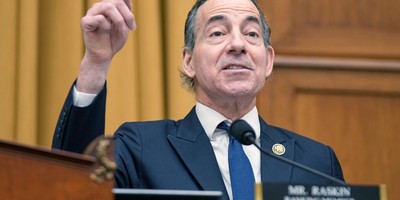WASHINGTON -- Following the primary season, the position of the Republican Party is strong but precarious, like a bodybuilder on a tightrope. Republicans benefit from tea party momentum. They suffer from tea party victories. As part of a political coalition, the tea party movement empowers. As the dominant actor, it alienates.
The problem for Republicans: They have no idea at what level the influence of the tea party movement will crest.
Delaware's Republican Senate primary defined one possible future. Voters elevated ideological purity above every other political value, including probity, relevant experience and electability. In the process, Republicans wasted an unusual opportunity to win a Senate seat in a heavily Democratic state. One poll reports that just 31 percent of Delaware voters believe Republican nominee Christine O'Donnell is fit to hold public office.
But the primary season told other stories. Sen. John McCain's trouncing of J.D. Hayworth showed that the tea party label does not guarantee success for buffoonish candidates. In a number of states, mainstream conservatives turned aside tea party challenges and are now propelled by political winds that once threatened to capsize their candidacies. One tea party hero -- Marco Rubio -- has turned out to be a strong candidate and likely Republican star.
So the picture is mixed. Who would have thought, on election night 2008, that within two years the most potent force in American politics would be a grass-roots conservative movement that is likely to help return Republican control of the House of Representatives? But particularly in smaller Republican electorates -- Delaware's 60,000 Republican primary voters or the few thousand Republican delegates who sent Utah Sen. Bob Bennett into retirement -- intensity can overwhelm judgment. As a rule, the smaller the Republican electorate, the larger the tea party influence. The larger the electorate, the more off-putting that influence becomes.
Recommended
Republican Senate prospects illustrate the challenge. Without the broad backlash to the Obama agenda channeled by the tea party, Republican control of the Senate would be inconceivable. Without the primary victories of tea party candidates in Nevada and Delaware, that control would be more likely. And some tea party activists seem content with this state of affairs, arguing that an unspoiled minority is preferable to a majority held hostage to its most liberal members. "We need people up here to understand we've got to get back to limited government," says Sen. Jim DeMint, R-S.C., who endorsed O'Donnell, "and we can't afford to have other Republicans who don't get that message."
But this is not the way parties gain influence. Imposing the same ideological standards for all Republican candidates -- in Delaware as in South Carolina -- would assure losses in whole regions of the country. And DeMint's Republican colleagues in the Senate cannot be pleased that his passion for purity may have helped deprive them of committee chairmanships that influence the direction of public policy in thousands of practical ways each year.
It is also dawning on Republicans that presidential caucuses and primaries -- small electorates sending outsized messages -- are well-suited to tea party intensity. If Sarah Palin were to run for president, she would likely win Iowa and South Carolina. No other prospect can make that claim. And though many Republicans remain in denial, this makes Sarah Palin the Republican front-runner.
Some intellectual conservatives believe that the tea party populism will be domesticated by governing. Says one: "The movement doesn't last through 2012 in anything like its current form. It will carry a Republican House and less Democratic Senate, but its energy will inevitably dissipate as national politics becomes more complicated with divided government and the economy improves some. That's why I think the policy wonks are important -- people proposing real ideas, how smaller government should mean a more robust civil society, while making sure there is a safety net for the poor. The new House might listen to these ideas more than the protesters themselves."
But it is also possible that the tea party will define the hated "establishment," not just as moderate Republicans such as Mike Castle of Delaware but as moderate conservatives of every stripe. Many tea party activists espouse a "constitutionalism" that amounts to an extreme libertarianism. Their goal is not just deficit reduction but the dismantling of the modern state. And they may prove harder to tame than some imagine.
A Republican Party propelled by tea party enthusiasm is headed toward victory. A Republican Party dominated by tea party ideology would be pure, disturbing -- and small.

























Join the conversation as a VIP Member